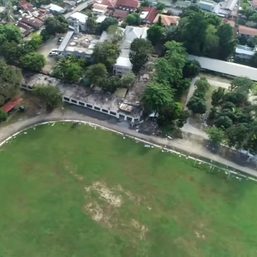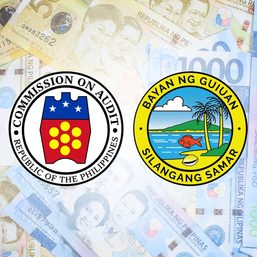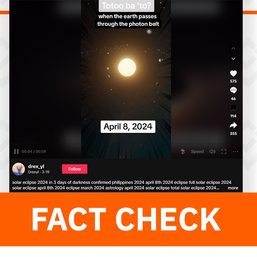SUMMARY
This is AI generated summarization, which may have errors. For context, always refer to the full article.

MANILA, Philippines (UPDATED) – The Philippines and South Korea, formally the Republic of Korea (ROK), have agreed to pursue a free trade agreement (FTA) in a bid to improve economic relations, according to the Department of Trade and Industry (DTI).
In a statement on Wednesday, April 17, Trade Secretary Ramon Lopez said both countries “agreed to put their best effort to conclude the negotiations” by November 2019, just in time for the ROK-ASEAN Commemorative Summit.
The Philippines and South Korea will also celebrate the 70th anniversary of their diplomatic ties that same month.
In a separate message to reporters Wednesday night, Lopez said that they aim to have greater market access for agriculture exports, as well as better collaboration on trade and investments in technology, such as electric vehicles and electronics.
“[This] FTA hopes to be future-oriented, that will differentiate this with other FTAs,” Lopez added.
The DTI said the decision came after Lopez’s meeting with South Korean Trade Minister Myung-hee Yoo, where both parties declared their interest in pursuing FTA negotiations.
“[T]he agreement will provide a more stable and predictable economic environment necessary to generate more trade and investments,” the DTI added.
According to the DTI, bilateral trade between both countries reached $13.7 billion in 2018, making South Korea the country’s fifth largest trading partner.
The Philippines’ top exports to South Korea include bananas, pineapples, and copper. Meanwhile, the Philippines imports mostly industrial products from the East Asian country.
South Korean investments in the Philippines for 2018 reached $35.79 million, most of these going to real estate and manufacturing.
Prior to the decision to pursue this FTA, the Philippines was already part of a trade bloc agreement through the ASEAN-Korea Free Trade Area which took effect in 2010.
The trade bloc ensures that the Philippines, along with other Southeast Asian countries, can attract foreign investments as well as have its status as a base of production improved due to reduced or removed tariffs.
If the FTA pushes through, it would be the Philippines’ second economic partnership, after the Japan-Philippines Economic Partnership Agreement. – Rappler.com
Add a comment
How does this make you feel?









There are no comments yet. Add your comment to start the conversation.